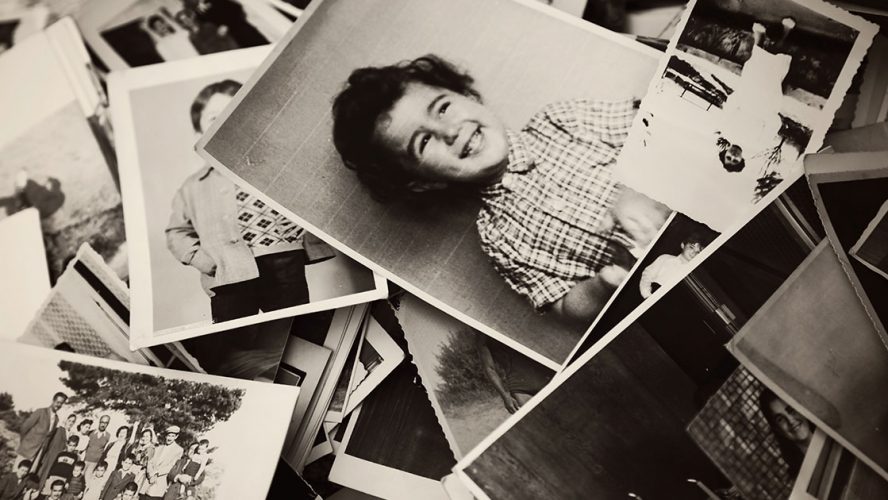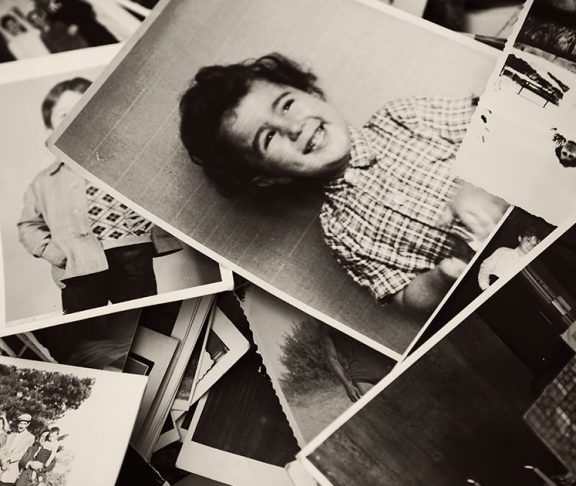My mom and I started Dementia Spotlight Foundation because of the callous parting words of a complacent, perhaps defeated physician still ringing in our ears: “He has Alzheimer’s Disease. Good luck, this will be the hardest thing you will ever have to do.” He was referring to my father, who died with Alzheimer’s disease and from congestive heart failure seven years after he was diagnosed.
Indeed, the journey was difficult, and I quickly learned that my family’s story was not at all unique. I met person after person touched by dementia who shared a similar story. It helped to know we weren’t alone, but that nagging question — “what do we do now?” — was always at the forefront of our minds. We knew deep down that Dad had a lot more life to live, joy to share and experience, and strength and hope to pass along to us, but we were given no direction from the medical professionals about how we, including Dad, could LIVE as his brain changed. After a great deal of research and talking to hundreds or people, we discovered that anyone faced with a dementia diagnosis — including the person living with dementia, the care partners, family members and friends — can find purpose and meaning in the midst of a changing brain.
Vince and Pops Zangaro
Intuitively this may not appear obvious, so I would like to share with you the stories of a few of my friends and colleagues to demonstrate what I mean. The first is Vince Zangaro. Vince’s dad was lovingly known as “Pops” by Vince, his sister and all of their friends. Pops was diagnosed with Alzheimer’s Disease when he was 62 — four years after his wife died. It was then that Vince, 28 years old, began his care partner journey and moved in with his Pops. While peers his age were climbing the corporate ladder, Vince was learning that instead of trying to force his father to live in “reality,” life was easier if he just accepted and lived in his Pops’s world. In Pops’s world, this meant redirecting him to another topic or waiting a few seconds for him to assess things on his own before touching him. In other worlds it meant answering the same question 20 times in 20 minutes. Vince gave Pops a safe and secure home environment and allowed Pops to keep his dignity in his role as father and friend.
Halfway through his care journey, Vince got married, tuned into his musical abilities and started the Alzheimer’s Music Fest. This annual festival raises tens of thousands of dollars to provide respite care to care partners in the Atlanta metropolitan area. Pops died a few weeks ago, and Vince now helps people living with dementia and their family care partners by sharing his experiences of caregiving and music. Vince is quick to tell people starting on the road of a dementia diagnosis, “I thought I was caring for him, but in all actuality he was caring for me. He truly saved my life.”
Kim and Barbara McRae
Kim McRae, another friend and colleague, uses the initials “FCTA” after her name. They stand for “Family Caregiver Turned Advocate.” She should receive an honorary Ph.D. for all of the work she has done to change the way people think and feel about aging and disability, especially for people who are living with dementia and those that care about them. Kim started caring for her mother, Barbara, when her father died. She was 35 years old, and her Mom was only 62 and already could not live by herself. Barbara was first diagnosed with Alzheimer’s Disease, and two years later the diagnosis was changed to Lewy Body Dementia. Upon autopsy, it was confirmed that she also had Progressive Supranuclear Palsy.
After years of witnessing and experiencing the inadequate information, care and support that was available for her mom and so many others in their situation, Kim committed her life to learning everything she could about how to help people live with changing cognitive abilities and their care partners. Since her mom’s death, Kim has trained hundreds of professional and family care partners, and contributed to the development of the Georgia plan for addressing Alzheimer’s and other dementias (GARD). She selflessly helps everyone who comes across her path to find meaning and purpose in facing the ups and downs of changing cognitive abilities.
Robert Bowles and Brian LeBlanc
I also want to tell you about Robert Bowles and Brian LeBlanc. Robert was diagnosed with Lewy Body Dementia seven years ago, and Brian was diagnosed with Alzheimer’s disease four years ago. These two men epitomize how one can thrive with changing cognitive abilities. Robert, a former pharmacist, and Brian, formerly a successful marketing and public relations executive, became dedicated advocates after they were diagnosed. They go to professional meetings and trainings, and they both blog to share their personal experiences of living with dementia and their changing cognitive abilities. They remind their audiences that even though they have changing brains, their dementia does not define who they are. Brian often says, “I may have Alzheimer’s, but it doesn’t have me.” They are both wonderful, passionate men with years of life experience and wisdom. They are filled with accomplishments, joy, disappointments, hope, anger and pride. They are people, just like those of us who don’t have brains that are changing (not yet, anyway).
Nena and Bill Thompson
Finally, there is my friend, Nena Thompson. Nena’s husband, Bill, stopped working when he was 55 years old. Unbeknownst to him and Nena, Bill was experiencing the effects of early-onset Alzheimer’s disease and was unable to carry out the duties of his demanding job as deputy commissioner for the Georgia Film, Music and Digital Entertainment Office. Nena has learned everything she can about his condition from the internet. She continues to work, though only part-time now. Mostly she is with Bill being sure he is safe and feels loved and cared for. Bill spends his days being sure that Nena feels the same. His entire life is focused on the wellbeing of his beloved wife and dog. Instead of looking forward to retirement, Nena spends a lot of time wondering how she will pay for the care that Bill will need soon (he is 63 years old).
In the United States alone, there are millions of care partners struggling with the same issues today. Nena is smart. She knows that a cure for Alzheimer’s disease will not be found during Bill’s lifetime. She knows that better and more affordable person-centered care — and her love, support and dedication — are the only options that will allow Bill to complete his life with dignity.
Each of these people have profoundly touched my heart and soul. As Dementia Spotlight Foundation grows, we will continue to sponsor trainings for professionals and family members about how to provide the best person-centered care possible for people living with dementia. We will ensure that the voices of people living with dementia and their family care partners are heard when others are making decisions that affect them. We will strive to help others find their own meaning and purpose in the midst of their journeys with changing cognitive abilities.

